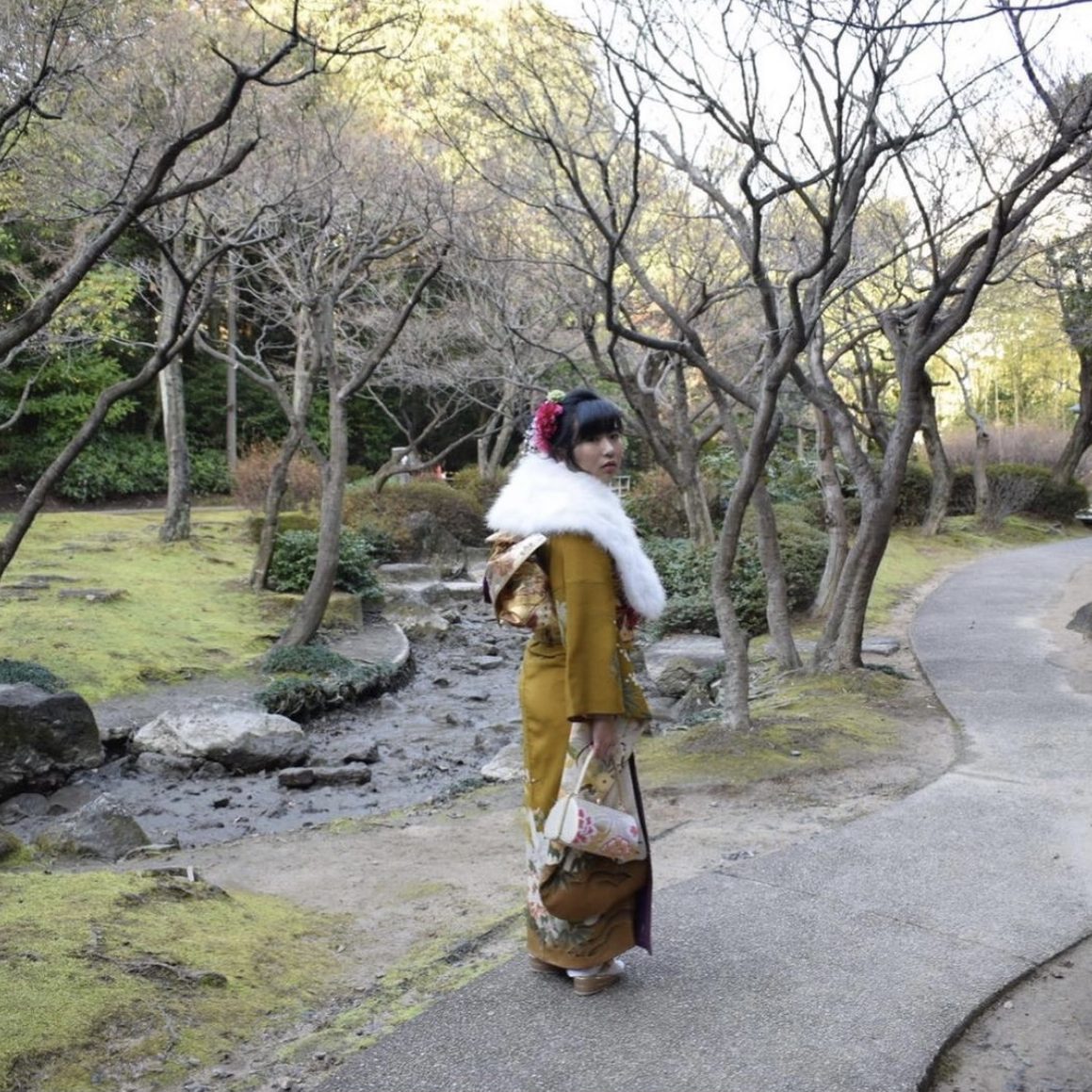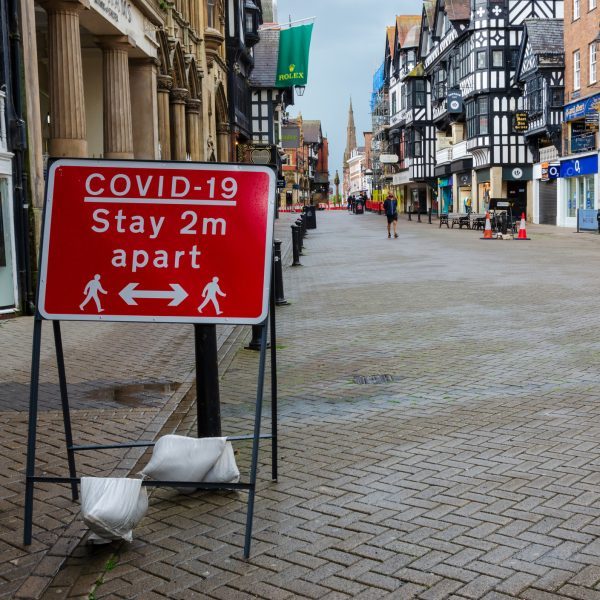For a year, COVID-19 has affected everyone in the U.S. to some degree. Whether it be college students who have adjusted to new online curriculums, the thousands of people filing for unemployment after getting laid off from their jobs, or families mourning the loss of loved ones. We have all been told how to change the way we live to protect ourselves and those we care about, and it’s easy to focus on ourselves and how we were forced to adapt here in the U.S., but to fully understand the impact of COVID-19, we must include the rest of the world in the narrative as well. In order to achieve this perspective, we have spoken with students who either studied abroad or who live in other countries to share their experiences. With this, we want to present the opportunity to recognize the commonality of hardship across borders. Of the many diverse countries around the world, we will recount the stories of exchange students and of people native to Japan, the UK, and China.

JAPAN ·In the beginning of the pandemic, life didn’t change much for Ayuha Miyamoto, a university student in Okayama, Japan. She noted that it was normal to wear masks, as they often do during flu season to control the spread of sickness. “But once it became spring and summer, it became more and more strange to wear them every day,” she said. Although most Japanese people are cautious about being sanitary, she remembered suddenly feeling scared to ride crowded trains or stand near people. “Every day felt like it could become dangerously serious,” she said.
Japan took one of the more lax approaches to the pandemic in the beginning. Many say the nation was more concerned with still holding the Olympics in the summer, and even hid case numbers for a bit (Trotter and Winsor, 2020). Miyamoto thought that it would have been effective to have more strict government regulations from the start, but ultimately she believes it is the individual’s responsibility to stay safe and prevent the spread of COVID-19 in their community.
“I believe that everyone is doing their best to be careful and considerate, but there are people in Japan who want to live life normally and are not careful,” she said. When asked for her opinion concerning re-opening the borders, she felt it would be best to wait until 2021 before even considering it.

CHINA ·Hundreds of miles away, Kaitlynn Husovsky first arrived in Hong Hi, China in late January for her study abroad program. She remembered how everything seemed normal. “Of course there was talk of a new virus in Wuhan, but it didn’t seem to be affecting the lives of the people here,” she said. “It was only after traveling to the major city of Jong Do that I noticed the changes: the city, usually bustling with a population of nearly 12 million, was completely empty.” The few people who were around were all wearing masks and keeping their distance from one another.
True to its nature as a country where the government is highly involved and even invasive in its citizens’ private lives, China’s police squads could be seen enforcing those regulations (Chak-sing et.al, 2020; Huang et. al, 2020). Citizens in China were questioned and searched, forced to quarantine, and even arrested if not abiding by the government policies (Huang et. al, 2020; Enos 2020). In addition to those methods of containing and regulating COVID-19 in China, testing, diagnosis, and treatment of COVID-19, as well as necessary medical equipment, were made free of charge and widely accessible to the public through health centers in the first 50 days of the virus outbreak (Chen B et.al, 2020). While this method was successful in the sense that COVID-19 has been primarily contained within China, (Bilin, C et.al 2020) it is possible that the reason it was effective is due to how the government is structured (Chak-sing et.al, 2020; Huang et. al, 2020). This is to say that without an authoritarian government in place, it is unlikely that such strict control measures could have been implemented and maintained.
As an Asian-American who grew up in a democratic state, Husovsky thought it was very different to see such intense rules so heavily enforced, but that did not mean that she felt her own autonomy was being threatened. On the contrary, she was more worried about being sent back to the United States, as she knew that Asian-Americans were being racially discriminated against as a result of the virus’ origin. “Hearing the words of U.S. leaders blaming China for the pandemic was extremely discouraging for me; I was scared of how I would be received by Americans when I returned,” she said.
Despite the harsh criticisms in the West, the people of China were suffering much the same as people around the world. Lives were being forced to change, people were dying, and what once was “normal” had become obsolete.

UNITED KINGDOM ·Heading West in late January, rumors began to circulate among people in the United Kingdom. “Have you heard?” The start of the COVID-19 pandemic was met with speculation and confusion. While the coronavirus had already begun to overtake normal life in Wuhan, China and the government took precautionary measures, over 5,000 miles away in England, Emily Arbor was not concerned. It didn’t seem possible for the invisible threat to reach the safe haven that was her island. She, like many, disregarded the virus as it was not immediately affecting her or the people close to her.
However, on the morning of March 18th, she began to feel the significance of the novel virus as new cautionary recommendations from the UK government were released. By her account, panic ensued when necessities at grocery stores became scarce as it was unclear how large the impact of COVID-19 would be. Public institutions began to work remotely, gyms and businesses closed their doors, travel plans were abandoned, and restrictions on how many times one was allowed to leave their home were enforced. Emily understood the necessity of these regulations, but it did not alleviate the financial or personal struggles she faced as her family lost large sources of income with the shutting down of businesses.
Nearly seven months since the initial COVID response from the national UK government, general public regulations have lessened as the country’s low state capacity has forced them to devolve the power to local authorities. Unfortunately, the lack of uniformity across the UK countries has led to unclear and often contradicting rules. For example, as one citizen from England stressed, “I can’t understand why a pregnant lady can’t have a second birthing partner but could go to the pub and meet up with five others.” Emily noted that the inconsistency of regulations surrounding COVID-19 is hindering the effectiveness of the response by creating confusion among the public. People do not know what regulations are in place and what information is out of date, so they choose to simply follow nothing.
After months of being surrounded by uncertainty and watching the numbers of active COVID-19 cases climb higher and higher every day here in the United States, it is incredibly easy for us to focus solely on our domestic situation. The stories of other people’s experiences and the government responses all over the world provide us with broad perspectives that look beyond personal surroundings. This virus does not discriminate and therefore has created a common circumstance that people in almost every country have felt. The COVID-19 crisis is a global issue that has engulfed the lives of everyone, no matter where they call home.
Aspen, Natalie, and Rowenna are current students majoring in International Studies. The interviews they conducted occurred in Oct. and Nov. 2020.
